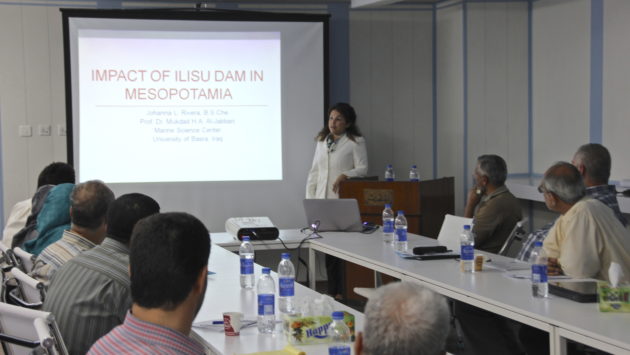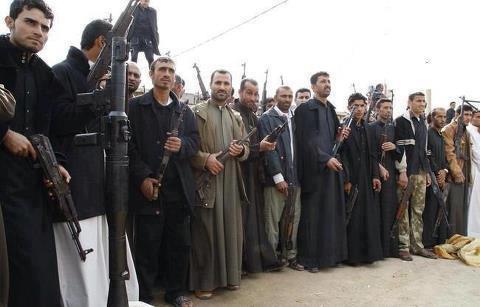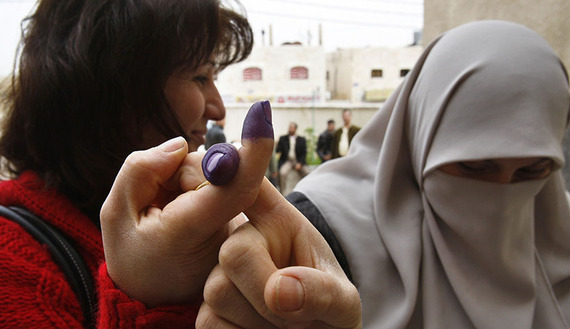Civil Society Statement on the Articles of Association of the International Code of Conduct for Private Security Service Providers
Civil Society Statement on the Articles of Association of the International
Code of Conduct for Private Security Service Providers
From February 19th to 22nd 2013, National Governments, Private Military & Security Companies and Civil Society Organizations will meet in Montreux (Switzerland) to advance the drafting of the International Code of Conduct (ICoC) for Private Security Providers’ document.
This statement highlights some of the key concerns about the Articles of Association published on January 31. It is not meant to be an exhaustive review of civil society’s position on the ICoC more generally. How governments and companies participating in the ICoC address these vital issues will determine the support that civil society can give to the ICoC and the confidence we can place in it as a credible initiative.

February 15, 2013
The International Code of Conduct (ICoC) for Private Security Service Providers (PSCs), if accompanied by an effective governance and oversight mechanism, could be a step towards increasing transparency and disclosure of the activities of the private security industry and towards holding PSCs accountable for human rights violations. Although the ICoC and its oversight mechanism cannot take the place of external national and international regulation, they bring visibility to the issue of PSC accountability and can offer one possible avenue for remedy to victims. The “Articles of Association” of the Code, published on January 31, bring a number of positive developments to the process. They recognize the key role that civil society has to play in effective regulation by establishing an oversight system involving civil society, industry and governments on an equal footing, and they lay out the bases for certification, monitoring, reporting, and complaint mechanisms. However, the Articles leave a number of key issues ill-defined or unaddressed, which raises concerns about the credibility, legitimacy, and efficacy of the Association. The ICoC can only be a credible initiative if:
1. The language approved during the Montreux drafting conference (February 19-22) is clear and does not leave key issues to be decided at a later date. The Articles of Association’s language is often vague on key issues, such as certification, monitoring and the third party claims process. This second draft leaves much to be determined by the Board and the General Assembly, which may lead to subsequent paralysis within the decision-making structure of the Association and roadblocks to significant action on these key points. It is not clear, for instance, what the relationship is between certification to a national standard and the requirements for certification under the ICoC. The link between certification, monitoring and third party claims should be better reflected in the text (Articles 10 and Articles 11). Instances of non-compliance identified during field missions and complaints processes should be a key element in subsequent certification processes. The current text does not clearly address how field missions for monitoring PSCs’ operations will be authorized (11.2.3). To avoid paralysis and industry members overseeing their competitors, it should be up to the Executive Director and Secretariat staff to authorize field missions. Many aspects of the third party complaint process also remain imprecise. The term “effective remedy” (Article 12), to be awarded to third parties complaining of a violation of the Code, is not explicitly defined either in the Articles of Association or in the Code itself. At a minimum, the third party complaints process should reflect the standards for effective remedy laid out in the United Nations Guiding Principles on Business and Human Rights (Guiding Principle 31). Similarly, paragraph 12.2.1 does not make clear exactly who may initiate a claim, whether it may be any third party aware of a Code violation, or only individuals who have been directly harmed. A requirement of direct harm would fail to capture all potential instances of non-compliance with the Code. We urge the adoption of clear and well-defined language that will establish credible certification, monitoring and third party complaint processes.
2. The Articles of Association establish a credible third party complaints mechanism that can truly ensure remedy for victims. We view the possibility of a fair, effective third party complaint mechanism, which would provide survivors of human rights abuses an accessible avenue to remedy, as the single-most important achievement of the ICoC. Such a mechanism was made one of the explicit goals of the ICoC process at its inception. Indeed, the ICoC Preamble provides that one of its purposes is to establish “external independent mechanisms for effective governance and oversight, which will include […] execution of a mechanism to address alleged violations of the Code’s principles or the standards derived from the Code” (A.7.b). Without an effective third party complaint mechanism, the ICoC falls short of its promises. In order to develop a complaint mechanism which can adequately fulfill the role of providing remedy to survivors, civil society representative of impacted communities – if not survivors themselves – must be consulted. Specifically, to date, there has been no inclusion of civil society from Africa or the Middle East, two regions with historic, recent and current penetration by the industry and its related legacies of abuse. The process envisioned under Article 12 in its current format is over-reliant on corporate-level grievance mechanisms. It limits the Association’s role to providing advice on the effectiveness of those mechanisms and suggesting alternative grievance venues should a complainant not feel comfortable lodging a complaint through the member company’s grievance mechanism. The Association is not empowered to decide on a complaint or to award any reparations. Moreover, the provisions to ensure transparency concerning all the complaints that are lodged and how they are ultimately addressed are inadequate. This system, which is more concerned with procedural compliance than with providing true remedy to victims, is unacceptable. A credible grievance mechanism must be transparent and independent, and it must be conducted by the Secretariat to avoid situations where PSCs adjudicate complaints about other PSCs. The existence of the complaints mechanism must be effectively made known to the public and readily accessible to complainants.
3. States and other clients commit to hiring only PSCs that are in full compliance with the code. The Articles of Association in their current format are surprisingly silent on the responsibilities and duties of states participating in the ICoC process. The Articles’ language is vague, only requiring states and other participating organizations to “communicate their intent to support the principles of the ICoC and participate in the activities of the Association” (3.3.2). We are concerned that, in the absence of an explicit pledge by participating states and other clients to use only companies in compliance with the Code, both state-clients and the industry will find it all too easy to proceed with “business as usual.” The ICoC will only be credible and legitimate if states pledge to hire and allow to operate within their borders only companies in compliance with the Code. Indeed, since member states must be signatories to the Montreux Document (3.3.2), requiring PSCs under their jurisdiction to adhere to the Code is in keeping with the good practices outlined in the Montreux Document that they are already committed to follow. Furthermore, the reach of the Association must be extended to include non-state clients – international organizations such as the United Nations, humanitarian and development organizations, and private companies, in particular those in the extractive and maritime industries. Inviting these clients to join the ICoC and to pledge to use only companies in compliance with the Code would give the Code a far more global reach. It would prevent PSCs from opting out of the Code by selling their services to non-participating clients.
4. Participating PSCs accept a credible level of independent external oversight. From the earliest stages of the drafting of the ICoC, all stakeholders agreed that the mechanism created would only be credible and legitimate if it established a strong framework to ensure independent third party certification and performance assessments of PSCs’ actual operations on the ground. We are concerned about attempts to limit the Secretariat’s capacity to independently monitor member companies, especially in the field, and to assess whether they are actually operating in compliance with the Code, not merely asserting the existence of company policies. The original text of the ICoC called for companies to “submit to ongoing independent Auditing and verification by [the oversight] mechanism” (A. Preamble, paragraph 8) and defined monitoring as “a process for gathering data on whether Company Personnel or subcontractors are operating in compliance with the Code’s principles” (B. Definitions, Monitoring). The Articles of Association in their current format fall short of this original commitment. The ICoC can only be credible if the Secretariat is able to maintain an independent capacity to authorize field audits in order to assess PSCs’ impacts and to follow up on allegations of noncompliance with the Code, even if certification to a national standard has already been granted. Because governments, as clients of the industry, may experience a conflict of interest in acting both as regulators and users of the industry’s services, an independent oversight mechanism is crucial to ensure that the process is credible. If the ICoC is to be more than a toothless process, the Board should also be able to issue sanctions for non-compliance with the Code, including but not limited to suspension or termination of membership. Companies whose membership was terminated should be banned from re-applying for ICoC certification for a specific period.
5. The ICoC is explicitly recognized by all participants as a stepping stone towards statutory regulation of the private security industry by states, not the end of the debate. States, as host countries, homes countries and clients of PSCs, retain the primary responsibility for regulating the private security industry. While the ICoC could be a positive development, provided that the issues above are meaningfully addressed, it is not sufficient to truly hold PSCs accountable. The Code, which envisions termination of membership as the ultimate sanction for non-compliance, is not equipped to deal with serious human rights violations, such as murder and torture. Only statutory national and international regulation can bring legal accountability and judicial remedies to victims for such actions. Indeed, as signatories of the Montreux Document, all member states in the Association would be required to establish criminal jurisdiction over PSCs and their personnel, to provide for non-criminal accountability, to include civil liability of PSCs, and to create sufficient administrative and other monitoring mechanisms to ensure accountability for any improper conduct. The ICoC could be a step toward opening discussion on regulation at the national and international levels, but it by no means signals the end of the debate. The Code does not and cannot address key questions raised by the private security industry that must be resolved at national and international levels, including the challenges they pose to democratic control over the use of force, the growing “securitization” of national and international politics, and the very real possibility that some activities should never be outsourced. The following Iraqi and International CSO endorse this statement:
● Campaign Against Arms Trade, UK
● Engineering Professions Union, Iraq
● Human Relief Foundation, UK
● Information Center for Research and Development, Iraq
● Initiatives Pour un Autre Monde (IPAM), France
● Italian Disarmament Network, Italy
● LaOnf (Iraqi Nonviolence Group), Iraq
● Society for Education and Rehabilitation of the Child, Iraq
● Tammuz Organization for Social Development, Iraq
● Un Ponte Per…, Italy
● War on Want, UK
● Women For Peace, Iraq
● Kateri Carmola (Middlebury College, US)
● Felip Daza Sierra (NOVA, Institut Internacional per l’Acció Noviolenta, Spain)
● Rebecca DeWinter-Schmitt & John Richardson (Initiative for Human Rights in Business, Center for Human Rights and Humanitarian Law, American University Washington College of Law, US)
● Patricia Feeney (Rights & Accountability in Development, UK)
● Mervyn Frost (War Studies Department, King’s College, UK)
● José L.Gómez del Prado (Independent Expert, Former Member UN Working Group on the Use of Mercenaries, Spain)
● Lou Pingeot (Global Policy Forum, US)
● Terry Rockefeller (September 11th Families for Peaceful Tomorrow & Iraqi Civil Society Solidarity Initiative, US)




